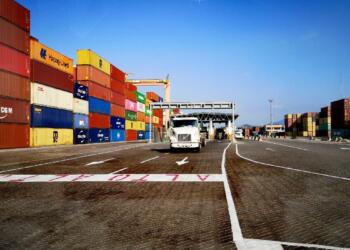
From logistics planning to infrastructure investment, automotive industry leaders in Mexico are seeking initiatives to ensure the sustainability and competitiveness of the sector , in a context of constant challenges in the supply chain.
Bernardo Taboada, Head of Logistics Planning at Volkswagen Mexico , highlighted the progress made in adapting logistics strategies to address changes in the market.
“We have learned a lot from past experiences. For example, we now use specific containers not only for regular volumes, but for solid markets, which is more cost-effective,” he said.
He also noted that the focus on stable processes and customization has been key in recent years.
Taboada also highlighted the importance of communication in the supply chain to react more quickly to unexpected disruptions.
“When there is timely communication, it is possible to seek alternatives and develop backup solutions. We have partnered with alternative capabilities, such as online transportation modes, to prepare for possible contingencies,” he explained.
For his part, Antonio Zepeda, commercial director of CSI Group , highlighted the progress in operational capacity and fleet renewal , emphasizing that in the last 11 months they have received 15 new trucks, and that by next April they expect to reach a fleet of 400 units, which represents a 60% increase in capacity.
This growth is accompanied by investments in maintenance services and infrastructure expansion , crucial elements for offering complete solutions.
Zepeda stressed the importance of integrating different modes of transport, such as rail, and noted that flexibility in logistics is key.
“Our distribution center in Veracruz allows us to adapt to the needs of our business partners, giving them confidence to make joint investments,” he said.
On the other hand, Felipe Quijano, Commercial Manager of the National Port System Administration (Asipona) Veracruz , said that the port continues to be a strategic pillar for the automotive industry and other commercial activities.
“Finished cars are one of our flagship loads, but we have also optimized spaces for other goods during periods of lower automotive production,” he said.
Quijano mentioned that Volkswagen and Asipona Veracruz are working on an advanced lighting project to improve night-time logistics, which will allow 24/7 operation during times of high load.
In line with global trends, Quijano also highlighted the growing infrastructure for electric vehicles in the port of Veracruz.
“Over the past three years we have doubled our charging station capacity and plan to install 14 more next year. We are also working with authorities to identify new areas that can accommodate additional charging stations,” he said.
Despite the many challenges facing the supply chain, industry leaders are confident that strategic investments and technology integration will help overcome the challenges.
“We are building the right conditions to adapt to whatever comes, with a focus on motivating our team and using resources efficiently,” Taboada said.
Comment and follow us on X: @jenna_GH_ / @GrupoT21















